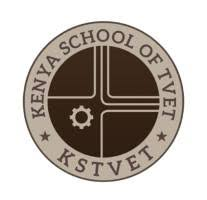UNIT DESCRIPTION
This unit specifies the competencies required to familiarize with the community awareness plan, identify resources required, carry out community awareness activities and document community awareness activities
ELEMENTS AND PERFORMANCE CRITERIA
|
ELEMENT These describe the key outcomes which make up workplace function. |
PERFORMANCE CRITERIA These are assessable statements which specify the required level of performance for each of the elements. Bold and italicized terms are elaborated in the Range |
|
1. Familiarize with the community awareness plan |
1.1 An assessment tool for knowledge, attitude and practices is prepared as per SOPs 1.2 Identification of the community awareness plan is carried out as per the organization policy 1.3 Review of the awareness plan is carried out as per the organization policy |
|
2. Identify resources required |
2.1 community awareness planning meetings are conducted as per organization policy 2.2 An inventory of community resources is compiled as per the awareness plan 2.3 Dissemination of information on resources is carried out as per organization policy |
|
3. Carry out community awareness activities |
3.1 Identification of community awareness activities is carried out as per organization policy 3.2 Identification of the community awareness messages is carried out as per organization policy 3.3 Identification of the channels of communication is carried out as per the planned activities 3.4 Conduct community awareness meetings 3.5 Feedback mechanisms are identified as per the planned activities |
|
4. Document community awareness activities |
4.1 Documentation procedures are identified as per SOPs. 4.2 Documentation plan is familiarized with as per organization policy 4.3 Documentation tools are identified as per organization policy 4.4 Documentation analysis is carried out as per organization policy 4.5 Documents are stored as per the organization policy |
RANGE
This section provides work environments and conditions to which the performance criteria apply. It allows for different work environments and situations that will affect performance.
|
Variable |
Range May include but not limited to: |
|
1. Awareness plan |
· Community name · Sketch map · Timelines · Resource persons · Calendar of events |
|
2. channels of communication |
· local barazas · ceremonies · harambee meetings · rallies |
|
3. Documentation tools |
· Cameras · Pens · Chalk/charcoal · Video recorders · notebooks |
- Teacher: Mercy Chemutai
